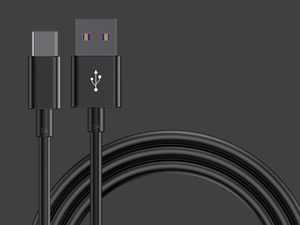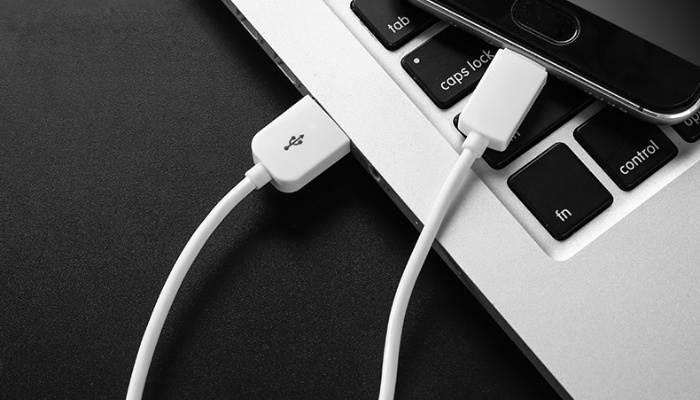- Missed It? Get a Second Chance. Black Friday Reloaded.
HK$0.00
Choosing the Right Charging Cable: How Material Affects Durability and Lifespan

Charging cables are an essential part of our daily tech lives, yet many users encounter the frustration of cables wearing out or breaking too soon. The lifespan and reliability of a charging cable largely depend on its material composition. Understanding the common materials used and their pros and cons can help you make a smarter purchase and extend the life of your cables.
Common Charging Cable Materials
PVC (Polyvinyl Chloride)
PVC was once the most common material for charging cables due to its flame resistance and durability. However, PVC cables tend to oxidize, yellow over time, and become brittle. They are more prone to cracking and peeling, especially near the connectors, which reduces their overall lifespan significantly. Because of these drawbacks, PVC cables are becoming less popular today1.TPE (Thermoplastic Elastomer)
TPE has become the dominant material for many charging cables, especially original manufacturer cables. It is flexible, soft, and offers good elasticity. TPE cables are safe, non-toxic, and easier to dye, allowing colorful designs. However, despite these advantages, TPE cables have a shorter lifespan relative to other materials and are more susceptible to damage like “breaking skin” or fraying after several months of use.Nylon Braided
Nylon braided cables are gaining popularity due to their enhanced durability. The braided outer layer provides excellent abrasion resistance, improved tensile strength, and better protection against bending stress. Many premium cables incorporate high-quality nylon or even Kevlar fibers to further enhance toughness. Although thicker and sometimes stiffer, nylon braided cables tend to last significantly longer than TPE or PVC counterparts12.Silicone
Silicone cables are known for softness, flexibility, and excellent resistance against wear and environmental factors. Their chemical stability and flame resistance make them eco-friendly options that do not easily tangle. Silicone cables typically offer good durability and user comfort, though they may be less common1.
Factors Affecting Cable Lifespan
- Material Quality: Higher-grade materials like nylon braid and silicone generally extend cable life, while cheap PVC or TPE tend to degrade faster.
- Connector Construction: The junction of the cable and the connector is the most vulnerable spot. Well-made connectors with robust joints, often using metal alloys like aluminum or carbon steel, improve longevity3.
- Usage Frequency & Handling: Frequent plugging/unplugging, bending, or pulling stresses the cable, accelerating wear. Proper handling and storage prolong lifespan.
- Environmental Conditions: Extreme heat, cold, or humidity can accelerate material aging and reduce cable durability4.
Practical Recommendations
To maximize the lifespan of your charging cables:
- Prefer cables with nylon braided exteriors or silicone coatings for their superior durability.
- Choose cables featuring well-constructed connectors made of sturdy materials like aluminum alloy.
- Avoid excessive bending or twisting, especially near connector joints.
- Store cables loosely coiled, avoiding tight wraps or knots.
- Replace cables as soon as you notice peeling or fraying to prevent electrical hazards.
Conclusion
The material of a charging cable plays a crucial role in its durability and lifespan. While cheaper PVC and TPE cables dominate the market, they tend to wear out faster. Investing a bit more in a nylon braided or silicone-coated cable can save money and hassle in the long run. Always look for quality materials and solid connector construction to ensure a reliable, long-lasting charging experience.

XIMAND Blog
Here, we dive into the ever-evolving world of electronics—from smartphones and laptops to smart home gadgets, wearables, and cutting-edge AI innovations. Whether you’re looking for in-depth reviews, practical tips, or insights into industry trends, you’ll find valuable content tailored for you.
Technology isn’t just changing the way we live—it’s reshaping the future. Whether you’re a tech enthusiast, a casual user, or simply searching for the perfect gadget, this blog offers expert, unbiased, and easy-to-understand guidance.
.

Product categories
Posts Widget
Join our newsletter
Get our emails for info on new items, sales and much more.
Register now to get latest updates on promotions & coupons. Don’t worry, we not spam!
Your Phone’s Ultimate Case.
Join thousands who trust Ximand for daily durability without sacrificing style.
Need Help?
Customer Service
- -5% for all order in this week
- Free delivery for all orders






